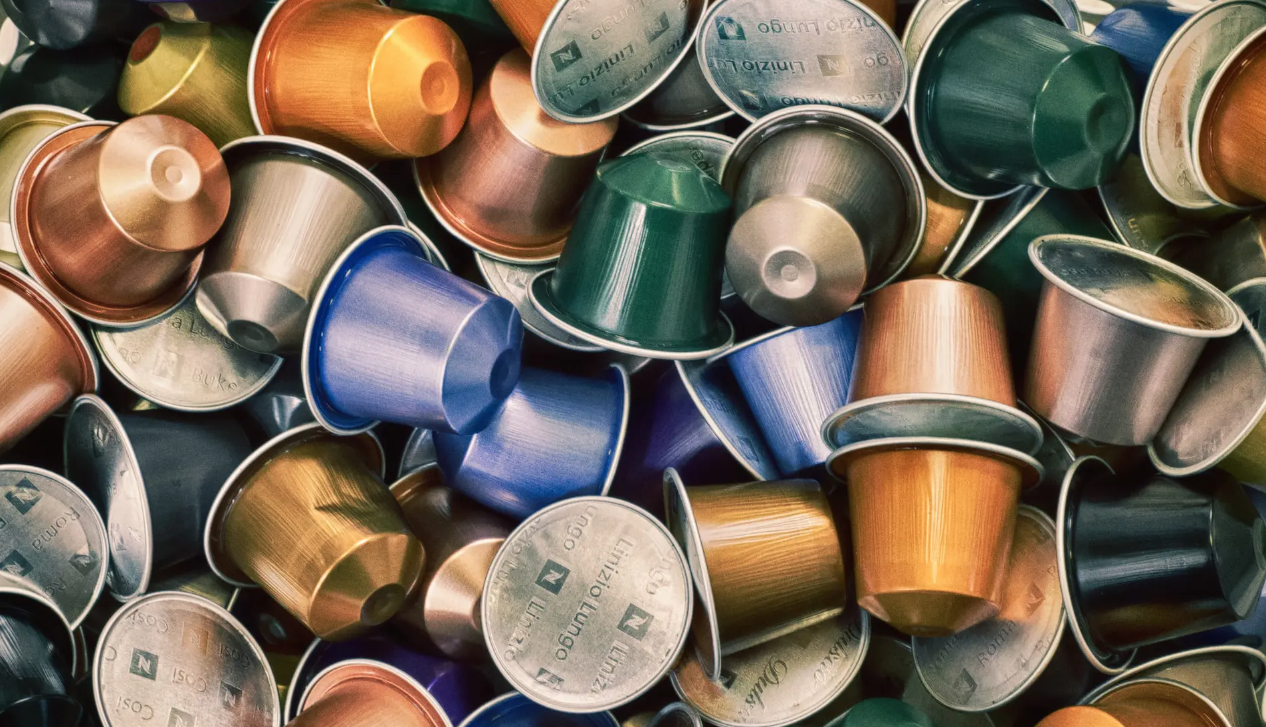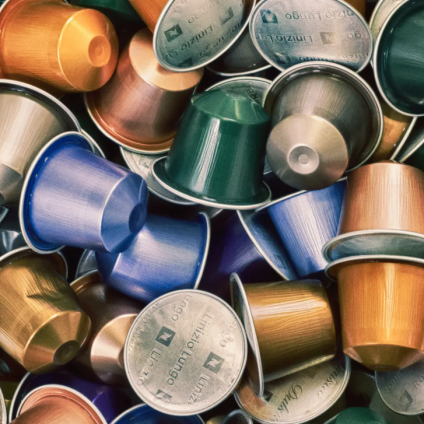An analysis by Wageningen University shows that the environmental impacts of compostable coffee capsules are minimal compared to other
In comparison with plastic and aluminum, compostable coffee capsules win hands down
– The prestigious Dutch University of Wageningen has assessed the environmental impacts and the circularity of different materials used to manufacture single-dose coffee capsules. The University has evaluated several end-of-life product scenarios, examining bio-based compostable coffee capsules, conventional plastic capsules and aluminum capsules.
The conclusions may seem obvious, but at least now there is a study to corroborate them. When considering both material circularity and greenhouse gas emissions, compostable capsules are the most sustainable option.
Circularity has been quantified with the Material Circularity Indicator (MCI), a tool developed by the Ellen MacArthur Foundation. This indicator is one of the most comprehensive tools available: it includes recycling rates, recycled content, recycling process yield, content of biological origin, reusability and average lifespan.
The MCI of compostable coffee capsules has a value of 100% (completely circular) when they are actually composted. Coffee grounds and capsule material can be kept in the circuit, as they are transformed into compost.
Compostable options remain sustainable even when consumers dispose of the capsules in the wrong container.
Aluminum capsules are a fallback choice. However, they can only be considered sustainable if they are selectively harvested. In essence, systems designed exclusively for the return of these objects must be put in place. At that point, the aluminum is then recycled and the coffee is composted. However, MCI remains lower (about 60%) than compostable capsules. Even when recycled aluminum is used to produce the capsules. A closed recycling system, that is, completely circular, is not feasible. Non-targeted trace elements will accumulate in aluminum, making it less flexible over time.
Finally, research shows that conventional fossil-based plastics do not fit into a circular economy. Neither plastic capsules nor used coffee grounds are recycled. In this segment, the MCI is less than 50%. If there was a need for some confirmation, he is now satisfied: plastic coffee capsules are not sustainable.













